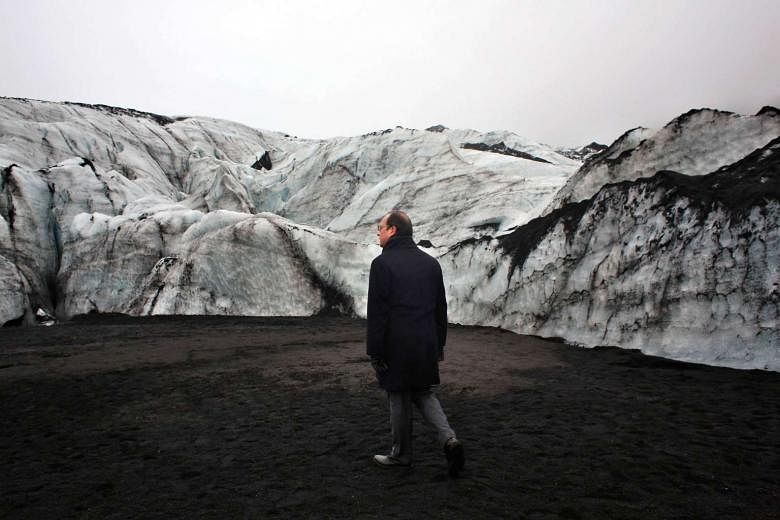BONN (AFP) - Home-stretch negotiations for a 195-nation climate rescue pact got off to a halting start Monday (Oct 19) with developing countries protesting that several of their key demands were being sidelined.
In the last round of official talks before a year-end Paris conference tasked with sealing the deal, 130-plus developing nations demanded to reinsert core suggestions on fairness and finance it said had been dropped from a streamlined draft text.
The new blueprint "is extremely unbalanced and lopsided," South Africa's climate envoy Nozipho Mxakato-Diseko told an opening session on behalf of the so-called G77 group of developing nations.
As it stands, the document "jeopardises the interests and positions of developing countries," she added.
Developing nations are particularly concerned about what they describe as vague wording on promised financial aid for their transition to low carbon-emitting economies.
Money should also go in equal measure, they say, to shore up defences against global warming impacts that can no longer be avoided, such as storms and sea-level rise.
Separately, vulnerable countries want assurances on payouts for "losses and damage" that will occur in spite of these adaptation measures.
The five-day huddle in Bonn offers the last chance for rank-and-file negotiators to barter on the wording of the pact meant to crown more than two decades of fractious negotiations.
The draft that emerges will be taken over by ministers and heads of state for adoption at a Nov 30-Dec 11 UN conference in the French capital.
Since the last round of negotiations in September, the joint chairmen of the climate forum have whittled the draft down from 80 pages to 20.
But many say they have gone too far.
And on Monday, developing nations insisted that deleted passages be restored before line-by-line text bartering can begin.
"We demand that the text be balanced for negotiations to commence," said Gurdial Singh Nijar, a spokesman for the Like-Minded Developing Countries (LMDC) group, which includes major carbon emitters China and India and falls within the G77.
The new draft "completely ignored the submissions of G77 on finance," Nijar told AFP.
Developing countries want the agreement to include wording on US$100 billion (S$138.45 billion) in annual climate finance the developed world had promised to mobilise by 2020.
- 'World is looking' -
Peru's Environment Minister Manuel Pulgar Vidal, who is presiding over the talks, recognised the disappointment of some parties.
But he told delegates that throwing out the draft was not an option, and urged them to "work constructively in trying to find a fair, ambitious and pragmatic outcome."
"The whole world is looking at us," said Vidal.
"The (Paris) agreement must launch the transformation of our economies toward a low carbon and resilient... society."
Climate envoy Laurence Tubiana of France agreed that the blueprint "lacks ambition on all the elements." "We are here today and for the rest of the week to correct these weaknesses," she said.
The co-chairman, Algeria's Ahmed Djoghlaf and Daniel Reifsnyder of the United States, agreed to allow text to be reinserted, but urged parties to limit themselves to the "absolute must-have items".
Due to take effect in 2020, the climate pact would be the first signed by all the world's nations.
The overarching goal is to limit average global warming to 2 degrees Celsius over pre-Industrial Revolution levels - beyond which scientists say the impacts will be disastrous.
The global thermometer has already gone up by 0.8 C.
US government scientists have concluded that 14 of the 15 hottest years on record have occurred since 2000, and 2014 was the hottest of them all.
The pact will be underpinned by a roster of national pledges for curbing carbon pollution.
But experts say the nearly 150 submissions received so far from nations - accounting for almost 90 per cent of emissions - placed the planet on course for warming closer to 3 C.
One of the key issues for Bonn will be a mechanism for a regular review and ramping up of national contributions after Paris.

